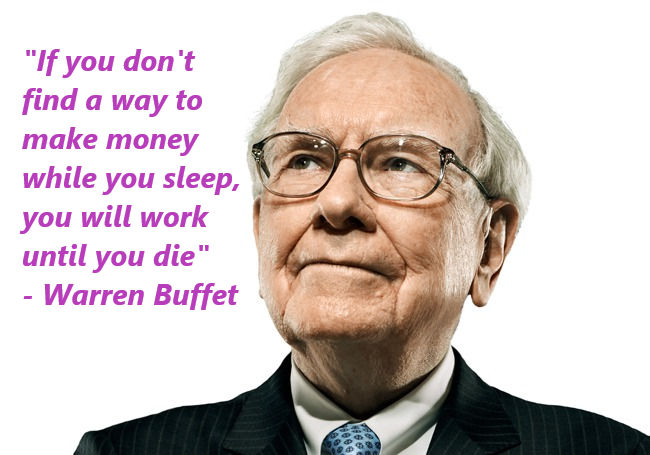“If you don’t find a way to make money while you sleep, you will work until you die” – Warren Buffett
While the pandemic has changed many people’s economic outlook; job losses and the impact on personal finances has decreased the demand for personally owned properties. There is now no shortage of residential supply in many markets. The sentiment for income property investing as a vehicle for building wealth and cash flow has not been better as there is an increased demand for rentals.
While lenders have taken a cautious posture to lending, costs of borrowing has generally gone down and interest rates are at historic lows.
If you have future plans to invest in your first property or continue to grow your portfolio, this is a great time to plan your finances and pave the way for the future.
Let’s discuss what to plan for from a financing standpoint to maximize your borrowing power and be in a strong position to make a new rental purchase when the time is right for you.
Plan your investment capital upfront
First, think about where the money for a down payment will come from to invest, way ahead of investing. Not just for your next property but for the next 3-5 moves.
Investors sometimes erroneously assume that as long as they have equity in their properties, they can come to those properties later in their investment journey and take money out at a low cost to raise their down payment capital for their next deal. Unfortunately, that is not always possible. Financing is a numbers game. As you grow your portfolio, your debt ratios go up (despite the rental income!). As a result, what you may have qualified for in terms of the amount of equity that you can take out from an existing property and in terms of costs may not necessarily hold after your debt load had increased.
It is important to always be ahead of the game and line up as much capital up front so that you have it when you do not really need it rather than when you urgently need it!
We are not talking about increasing mortgage debt across your portfolio, but rather setting up secured lines of credits where possible.
Secured lines of credit give you access to capital without costing you on a principal and interest payment on a monthly basis. Further, you pay as you go only when you use the funds, you can make a minimum interest only payment on the outstanding balance – which works better from a cash flow stand point – and you can convert the revolving balance to a mortgage at any time so you can pay down the principal.
High impact debts
A common misconception with respect to debts is that lenders take into consideration (for mortgage approval purposes) the payment the client pays on those debts.
For example: a client may be paying zero interest on a promotional credit card with $30,000 that offers a six months’ interest free arrangement. While the client is paying nothing on that card for the promotional period, many lenders would factor a 3% of the outstanding balance into their calculations (i.e. $900 per month). Other types of loans that often adversely impact mortgage qualification (amount and rates the client qualifies for) are car or investment loans.
A car loan that has $10,000 balance remaining with a high monthly payment will negatively impact qualification despite the fact that the balance is small.
Planning your income
If you are a self-employed client who has a sole proprietorship or incorporated business, the income you declare on your personal tax returns plays a huge role in helping you qualify for a mortgage with the “A” lenders (i.e. the lenders that offer the most attractive financing terms).
If you are sole proprietor, the “A” lenders go by your net (not gross) income for the two most recent tax years. If you have an incorporated business, the A lender will also go by your two most recent tax returns and will look into how much you paid yourself from the business in the form of T4 income and dividends.
If you know that you want to acquire say 3 properties in a particular market in 2021, we recommend that you proactively plan and report the income needed to qualify you for the loan amount needed. Working with the client’s accountant, we have guided many to report the optimal income that would work from a financing standpoint with the least tax implications.
Revolving debt converted to amortized debt
Many investors rely on equity in their properties as a source of capital to grow a portfolio.
If you have multiple properties and have used leverage to grow, you likely have a line of credit with a large revolving balance. Depending on the number of properties you have and your debt to income ratios, there comes a point where a large outstanding balance on your lines of credit stands in the way of getting a mortgage approved with an A lender.
As previously mentioned, while you may be paying an interest only payment on the line, the “A” lenders in particular take a different payment into consideration. For example: if you have $400,000 outstanding on your secured lines of credit and you are paying an interest only payment at prime (currently 2.45%), your monthly interest only payment would be $204; while in the eyes of the “A” lenders, you are paying a monthly payment of $2,369.87 as the lenders calculate the payment based on the Bank of Canada Rate (a much higher rate than the 2.45%) using a 25 year amortization.
To address this issue, we recommend converting a portion or all of the line into a mortgage. While your monthly payment would be higher as you would be paying down principal, in the “A” lenders’ eyes: your monthly payment is actually lower than the $2,369.87 because in that case they would go by the actual mortgage payment. For example: if we were to convert the full $400,000 into a mortgage at today’s rate of 2% at 30 year amortization, the resulting monthly payment would be $1476.82.
If you have an advanceable line of credit, you can easily convert portions of it into a mortgage. If you do not, then you would likely need to refinance to do so.
It is important to note that converting a line to a mortgage has to be done in a strategic fashion and after speaking with your mortgage advisor to discuss where it makes sense to do so.
The Westhawk Property Management team of professionals are here to help you build wealth through real estate investing. We will free you up to pursue your career, spend time with your families and your other important interests while saving you costs and frustration. Call us today to discuss how we can be of service to you.
Westhawk Property Management
https://www.whpm.ca/
info@whpm
403-319-0701
Contact Us


